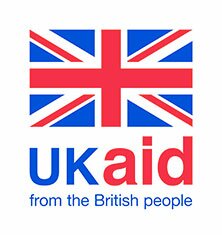COVID-19

Credit: Corporal Paul Shaw/MOD
This rapid literature review on the role of community health workers (CHWs) is part of a COVID-19 series of publications from Maintains. It explores the barriers and facilitators affecting the response of CHWs to epidemics and identifies opportunities to strengthen their role in shock-responsive health systems. Authored by Shuchi Srinivasan and Radhika Arora.



Credit: Corporal Paul Shaw/MOD



Credit: Corporal Paul Shaw/MOD
This snapshot of a rapid literature review focuses on three key aspects of health systems when responding to past disease outbreaks: impact on women, significance of trust, and everyday resilience. By Rithika Nair, Health Consultant.



Credit: Corporal Paul Shaw/MOD



Credit: Pete Lewis/DFID
This rapid literature review on health services is part of a COVID-19 series of publications from Maintains. Drawing on learnings from past disease outbreaks, particularly Ebola in West Africa, it considers the immediate challenges as well as the longer-term approaches required for recovery and reform to enhance future health system resilience. Authored by Rithika Nair, Health Consultant.



Credit: Pete Lewis/DFID



Credit: Pete Lewis/DFID
Key findings from a literature review on how social protection systems are responding to COVID-19 and what we can learn from previous epidemics.



Credit: Pete Lewis/DFID



Moustapha Diallo/ IFRC
This rapid literature review on social protection is part of a COVID-19 series of publications from Maintains. It explores how social protection systems are responding, what we can learn from previous epidemics, and what measures can be used by low and middle income countries to cope with the impact of a pandemic on poverty, vulnerability, and social exclusion. Authored by Madhumitha Hebbar and Laura Phelps.



Moustapha Diallo/ IFRC



Credit: Rachel Clayton/DFID
This rapid literature review on governance and state capability is part of a COVID-19 series of publications from Maintains. It looks at evidence and experience of how countries respond to health shocks, and the implications for public sector governance and state capability. Authored by Stephen Akroyd, Peter Harrington, and Alexandra Nastase.



Credit: Rachel Clayton/DFID



Credit: DFID/Russell Watkins
Lessons from a recent literature review of governance and the role of the state in responding to COVID-19. By Stephen Akroyd, Principal Consultant, Public Sector Governance, OPM.



Credit: DFID/Russell Watkins



Credit: Corporal Paul Shaw/MOD
What we learned from a recent literature review of disaster risk finance, public financial management and COVID-19. By Felix Lung, Maintains Global DRF Advisor and Learning Lead.



Credit: Corporal Paul Shaw/MOD



Credit: Anna Dubuis/DFID
This rapid literature review on disaster risk financing (DRF) and public finance is part of a COVID-19 series of publications from Maintains. It draws on literature from DRF and public financial management (PFM) to provide a snapshot of the current state of research on the impact of health shocks on low and middle income countries. Authored by Felix Lung, Maintains Global DRF Advisor and Learning Lead.



Credit: Anna Dubuis/DFID



